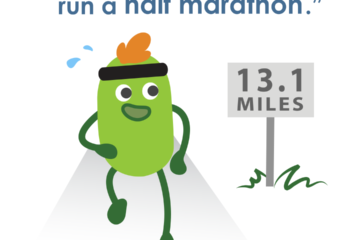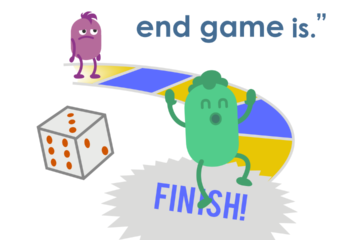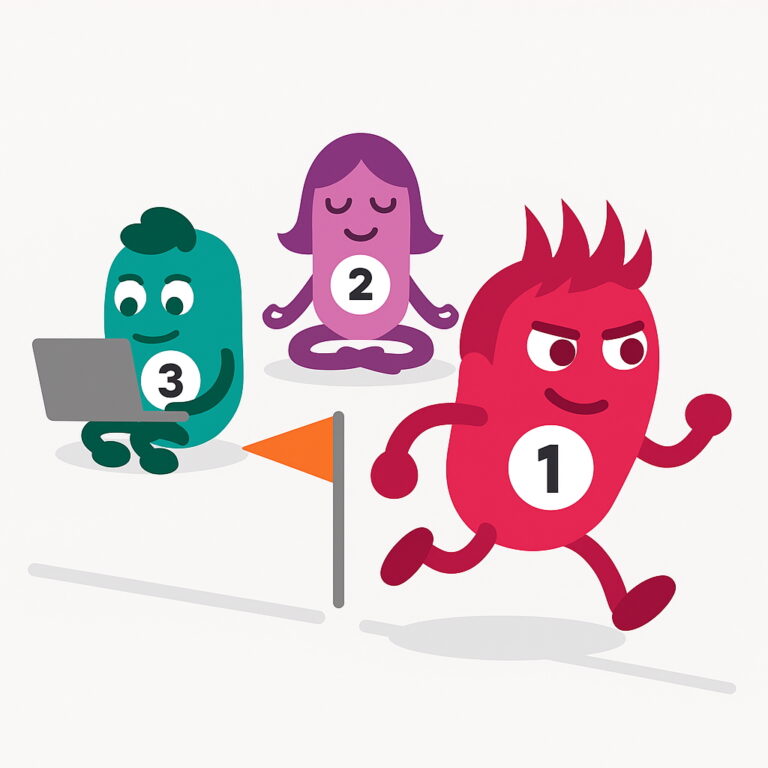People with ADHD know what to do, but they can’t do what they know.
– Dr. Russell Barkley
WHAT IS ADHD?

“Scott”, Distracted Boy
You remember Scott? That kid next to you in geometry class who was constantly tapping his foot, and Ms. Franklin would yell, “Scott, pay attention!” He probably had ADHD.
Or maybe Scott was you.
You start to watch Ms. Franklin talk about Pythagoras, or you begin to write five hundred words on Pride and Prejudice, and after a few moments you lose interest, focus on something else, forgetting about Pythagoras, forgetting about Pride.
So psychiatrists and psychologists agreed to describe this situation as a deficit – a lack of – attention. Implying, you don’t have enough attention to complete the task you started on.
ADHD stands for Attention Deficit Hyperactivity Disorder, (or the disorder formerly known as ADD, Attention Deficit Disorder.) Fildena 100 mg https://www.ministryofmasks.com/fildena-100-mg/
It’s an attempt to describe a combination of traits in a person who has poor impulse control, is physically or mentally hyperactive, and most important, has difficulty holding their attention on certain things for a desired period of time.
But the label of Attention Deficit is faulty, because people aren’t born with a certain amount of “attention”, and some people, like Scott or you, just got less.
Attention is an ongoing process that describes the whole interaction of your brain activity with the environment: the flowering of your genetic predispositions interacting with what’s going on around you through your neurons and neurotransmitters.
ADHD describes the quality of that interaction, in particular with those things that may not be vividly interesting to you, like Pythagoras or Pride. Interactions when your attention becomes shorter, more spotty, and decides to move on to more tantalizing things.
BUT IS ADHD A REAL THING? MY DAD SAYS IT ISN’T, AND THAT I’M JUST LAZY. SHOULD I TRUST MY DAD, OR SHOULD I TRUST SCIENCE?
It is real indeed, and like many things in life exists on a spectrum. This spottiness of attention is attributed to a net deficit of dopamine or norepinephrine in the brain These neurotransmitters are separately responsible for pleasure, reward, motivation, mood, heart rate, blood flow and readiness for action. (Sex, anyone? Chocolate, anyone? L-DOPA, anyone?)
ADHD should really be called DDHD, Dopamine Deficit Hyperactivity Disorder.
So if there’s a deficit of these neurotransmitters, pleasure, reward, motivation may be less readily available, than in other people.
What does this mean in the real world?
ALL THE WORLD’S A VERY ACTIVE STAGE
Imagine your life as a play on a stage, and your attention is the Spotlight.
In fact, you don’t have to work too hard, because there’s something called the Spotlight Theory of Attention.
This play is called: Living with ADHD, A Tragicomedy in five acts.
The setting is Geometry Class, and the spotlight is on the star, Ms. Franklin, who’s reciting her famous monologue about cosine.
But as she speaks the spotlight shifts to the girl next to you and focuses on her curly, reddish hair – “Wow!” you think. “How does she get it that curly? Is it natural? Does she like me?”
The spotlight then shifts to the sound of the guy chewing gum behind you “disgusting,” you intone.
Then the movement of the second hand on the clock, “Time is my enemy,” you write.
Then the tightness in your stomach, “Must eat…want chocolate...” you whisper.
If this play was supposed to be about geometry, the rogue spotlight operator has taken over, and shines his light on… who knows?
If all the world’s a stage, with ADHD, there’s no one star of the show. If Andy Warhol had been a psychiatrist, he might have said to a patient with ADHD, “everyone will be world-famous for 15 minutes until you lose interest, which will probably be about 20 seconds.”
So it’s not that there’s a lack of attention; there’s a plethora of it! There’s less of an ability to control it.*
So, when EVERYTHING becomes important, nothing is.
*There is what’s termed “hyperfocus,” but I’ll get to this in another post.
HOW ADHD MAKES YOU FEEL
When the spotlight returns to the original star of the show, Ms. Franklin, she’s since moved on to a completely different part of the story, “Scott! What’s a Varignon Parallelogram?”
“Say what?”
You’ve been mentally traveling through the space of your mind, and when you’ve returned, everyone’s changed. You feel you know what they’re talking about, because you’ve been in the room, but actually you have no idea, because you haven’t been present in the room. You’ve been mired in all these other stimuli, and your thoughts and feelings about those stimuli.
You’re lost.
This lack of self-control can lead to
- a lack of meaning
- feelings of hopelessness
- feelings of low self-worth
All of which are symptoms of depression. In fact, research has show a significant link between ADHD and episodes of major depressive disorder.
So, you’ve lost track of the story in this play; you don’t understand what’s happening on stage; and this play – aka your life – loses meaning…
You lose motivation.
WHO CARES?
I do, because I was diagnosed with ADHD as an adult. This discovery was revelatory for me, and made sense of so much of my history. While I sometimes felt like Superman, hyper-observant, picking up on tiny cues in the environment or in someone’s behavior that other people didn’t seem to notice, it also caused me to be hypersensitive to these cues. For example, the sound of someone chewing drives me crazy. (Which, happily has a name: misophonia). So if I’m Superman, the world around me is made of a sparkling, fascinating Kryptonite.
SO? WHY SHOULD I CARE?
Because ADHD is coming for YOU. Yes, YOU.
While ADHD is a combination of genetic and environmental factors, the symptoms of ADHD: distractibility, FOMO, overwhelm, lack of meaning, decrease in motivation, difficulty with follow through, frustration and depression are spreading like an algal bloom in in the pristine lake of your mind.
The cause of these symptoms are blogs, web series, podcasts, commercials, emails, to-do lists, Facebook posts, Twitter tweets, Instagram photos etc. These are brain candies for the mind, feeding our hungry dopaminergic system, which hunts for pleasure, but our attention on these sugary treats are short lived.
We leave behind the accumulated corpses of half-read stories, skimmed tweets, and most frighteningly half-completed projects of our own.
We’re surrounded by these fragments of ideas, cutting off our own oxygen: our ability to stop, breathe, think and process information healthily.
SHOULD WE BE WORRIED?
Mmhm.
If you read The Shallows, by Nicholas Carr, he demonstrates how the internet differs from previous technologies in how quickly and immediately hypertext (clicking on links) affects the development of our brain. He writes,
“Deciphering hypertext substantially increases readers’ cognitive load and hence weakens their ability to comprehend and retain what they’re reading…Hypertext readers again reported greater confusion following the text, and their comments about the story’s plot and imagery were less detailed and less precise than those of the linear-text readers. With hypertext, the researchers concluded, “the absorbed and personal mode of reading seems to be discouraged…The medium used to present the words obscured the meaning of the words.” [I boldfaced these words, it was me]
Form is overwhelming content.
The internet itself is becoming more important that what we’re saying on it.
Companies exploit this phenomenon and craftily try to hold our attention for as long as possible with myriad clicks and links (::cough::facebooktwittersnapchat::cough::).
We’re doing without thinking, saying words that are meaningless.
Sound familiar?
Because of the internet, people without ADHD are becoming more like people with actual ADHD. They are unable to follow the story, they are more confused, which leads to a lack of meaning, a lack of motivation, and even depression.
BUT, there is hope! We have to keep reminding ourselves:
The internet exists to serve us, not us it.
THE WAR OF ATTENTION
This is a War. And it’s between self-determination and chaos. Between meaning and nothingness.
To win the daily battles of distraction we need to stockpile all our weapons of focus to reclaim our value and meaning in our lives.
Whether you have ADHD or not, here are some tactics, (that need to be repeated over and over again), to begin standing up for yourself.
- Articulate what you are fighting for, what you are working towards. I use the The Self Journal PDF, but the specifics don’t matter.
- Keep returning to it, no matter how many distractions keep getting in the way.
- Meditate using Headspace.
- Use Plan to plan your day.
- Block your Facebook news feed
It’s a daily fight, but as you fight, each day, you’ll slowly discover you have more energy, more passion and more clarity. And as you clear away the half-finished corpses of consumption, Meaning, aka, why you’re here, will slowly begin to emerge.
Ready to get accountable and do what you say you’ll do? Join the Email List…
[yikes-mailchimp form=”1″ submit=”Join the Email List!”]




3 Comments
Jason N Fisher · at 5:29 am
Some good mercurial actors find that later in life, when the exuberance of their 20s-30s is far gone, when the biz has Iago-ed them towards self preservation–but they know they still have something to say—a certain salt compound.
ADD? Maybe.
I read the DSM cover to cover. The risk of giving 5 year old’s Vyanize is too great. The brain is not an easy field of study. Just 5 years ago transgender(ism?) was listed as a personality disorder, now the Matrix twins are on Cloud Atlas and Wheaties finally got the attention that kim had.
My 5 cense
Michael G. · at 4:48 pm
At first I thought this was spam, but then I recognized the name. Hey Jason! I think it’s great you read the DSM cover to cover, but would also love if you’d read the article to the end. This article is about the nature of distraction, and how people’s experience of it is increasing over time leading to a loss of meaning and unhappiness. Those of us with ADHD are the canaries in the coal mine of distractibility, but can also help lead the way to manage it.
Michael G. · at 12:54 am
Proven correct one year later: https://www.latimes.com/science/sciencenow/la-sci-sn-digital-media-adhd-20180717-story.html
Comments are closed.